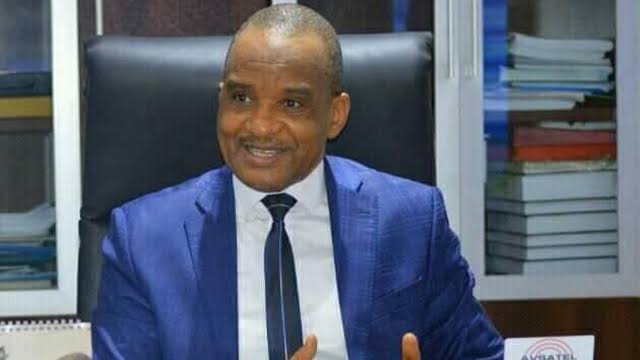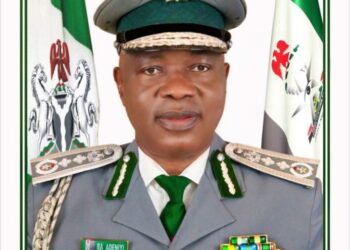The Nigerian Maritime Administration and Safety Agency (NIMASA), has expressed commitment to playing a leadership role that will ensure growth and development of the maritime sector.
Hajiya Rakiya Lamai, Deputy Director, Shipping Development at NIMASA, made this known in Kaduna on Sunday, at the closing ceremony of the 44th Kaduna International Trade Fair.
NIMASA received an award for emerging the second runner up at the fair.
Lamai, who noted that the theme of this year’s fair; “Promoting Value Addition for Sustainable Growth and Development”, was apt, appreciated the efforts of the Kaduna Chamber of Commerce, Industry, Mines and Agriculture (KADCCIMA) for the award.
She noted that for emerging second runner up at the fair, it showed that NIMASA had not wasted its efforts or contributions towards the success of the fair.
“We thank KADCCIMA for giving us the opportunity to participate, and for the award which is unprecedented,” she said.
NAN also reports that NIMASA promised to exploit all the additional values of the maritime sector, by bringing it to bare, for sustainable growth and development of the Nigerian economy.
The Director General (D-G) of the agency, Malam Bashir Jamoh, explained that Nigeria had a coastline of about 853km and about 10,000km of inland waterways, 12 nautical miles of territorial waters, 200 nautical miles of Exclusive Economic Zone.
Jamoh, who was represented by the coordinator of the Abuja Zonal Office of the agency, Mr Zailani Attah, said that the maritime sector played a greater role in international trade and Nigeria’s import and export sectors.
“It generates appreciable revenue and creates lots of jobs. It is critical to the supply chain of the Nigerian economy,” Attah said.
While calling for more collaboration among stakeholders in realising a robust Maritime Sector interface, the DG announced that a zero tariff had been approved for brand new imported vessels.
He disclosed that one and two years old vessels would pay minimal duty of between one to two per cent, as a means of boosting indigenous shipping through fiscal incentives.
Jamoh further said that the agency would prioritise the integration of blue economy into the nation’s circular economic restoration and growth plan.
“There is no better time to have a national carrier and develop the maritime industry than now, when the world is gradually looking away from fossil fuels.
“Nigeria cannot be caught unawares; we need to look at ways of developing our shipping sector, which could earn the country even more than oil annually.
“We had in 2021 deployed the modern technology, using the instrumentality of the Deep Blue Project to implement the first ‘S’ of the tripod, which is security, to stem the tide of piracy in the country’s waterways,” he said.
He explained that the objective was to keep the waterways secure for all maritime activities to thrive, thereby positioning Nigeria’s economy on the path of rapid growth.
“Statistics released by the International Maritime Bureau, shows piracy incidents in the Gulf of Guinea dropping from 81 in year 2020, to 34 in 2021, representing 58.02 per cent.”
Jamoh further said the wreck removal exercise was another milestone in the incremental achievement of the ‘Triple S’ strategy of the current management of NIMASA, anchored on maritime safety security and shipping development.
He added that in December 2021, they launched the third phase of Nigerian Seafarers Development Programme (NSDP), called NSDP Tera, sponsoring 200 cadets to different countries.
He explained that the NSDP, aimed at addressing the dearth of trained and certified seafarers in the Nigerian maritime industry.
shippingposition
Kindly like us on Facebook/twitter















